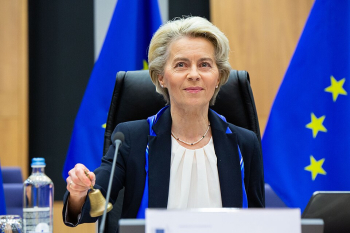
The Commission welcomes today's political agreement between the European Parliament and the Council on a stronger mandate for Europol, the EU agency for law enforcement
cooperation. Under this reinforced mandate, Europol will be able to step up its support to Member States in fighting serious crime and terrorism and tackling emerging security threats. Europol will be able to cooperate effectively with private parties. The updates also set clear rules on processing large and complex datasets, and allow the agency to develop new technologies that match law enforcement needs. These changes come with a reinforced data protection framework as well as stronger parliamentary oversight and accountability.
Vice-President for Promoting our European Way of Life, Margaritis Schinas, said: “Europol is a true example of where EU action helps protect us all. Today's agreement will give Europol the right tools and safeguards to support police forces in analysing big data to investigate crime and in developing pioneering methods to tackle cybercrime. We are and will continue delivering on the Security Union.”
Commissioner for Home Affairs, Ylva Johansson, said: “Europol needs modern means to support police in their investigations. The stronger mandate agreed today asserts Europol's place as a global leader in developing new technology for law enforcement, cooperating with private companies to prevent and investigate crime and protecting fundamental rights like personal data protection.”
The updated mandate includes:
- Effective cooperation with private parties, in full compliance with strict data protection requirements. Terrorists often abuse the services provided by private companies to recruit volunteers, to carry out terrorist attacks and to disseminate their propaganda. Under its revised mandate, Europol will be able to receive personal data directly from private parties and analyse this data to identify those Member States that could open investigations into related crimes. Such cooperation will remain subject to strict data protection requirements.
- Clear rules on the analysis of “big data” by Europol to support criminal investigations, in compliance with fundamental rights. The processing of large data sets is an integral part of today's police work, and Europol's role is essential in detecting criminal activities that escape the analysis by individual Member States. The new mandate provides legal clarity on the pre-analysis of big data by Europol, addressing also recent decisions by the European Data Protection Supervisor. Europol will have 18 months to pre-analyse big data received from Member States and give it a data subject categorisation, with a possible extension for another 18-month period.
- A support role for Europol in issuing information alerts on foreign terrorist fighters. Europol will be able to propose that Member States enter in the Schengen Information System information received from non-EU countries on suspects and criminals, in particular foreign fighters. This will make such information directly available to officers at the Union's external borders and within the Schengen area.
- Reinforced cooperation with non-EU countries as serious crime and terrorism often have links beyond the territory of the Union.
- Improved cooperation with the European Public Prosecutor's Office. Through a hit/no-hit system, the European Public Prosecutor's Office will be able to have indirect access to Europol data in relation to offences within its mandate, in line with the applicable safeguards. This will support criminal investigations and prosecutions.
- A new role for Europol in research and innovation to identify new technology needs for law enforcement, helping to equip national law enforcement authorities with modern IT tools to counter serious crime and terrorism.
- Further strengthened data protection framework at Europol to make sure Europol continues to have one of the most robust data protection frameworks in the world of law enforcement, in line with EU rules on data protection.
- Reinforced supervision of Europol, with additional powers for the European Data Protection Supervisor and a new Fundamental Rights Officer at Europol.
- Strengthened parliamentary oversight and accountability, with a reinforced role for the Joint Parliamentary Scrutiny Group (in charge of monitoring the agency's activities), advised by a Consultative Forum.
Next steps
The Regulation must now be formally adopted by the European Parliament and the Council.
Background
Europol offers support and expertise to national law enforcement authorities in preventing and combating serious crime and terrorism.
The Commission proposed to strengthen Europol's mandate in December 2020 to allow the agency to better support national law enforcement authorities with information, analysis and expertise, and to facilitate cross-border police cooperation and terrorism-related investigations. The Commission also presented a proposal to enable Europol to issue alerts in the Schengen Information System based on information from non-EU countries, in particular, to detect foreign terrorist fighters. Photo by OSeveno, Wikimedia commons.

















